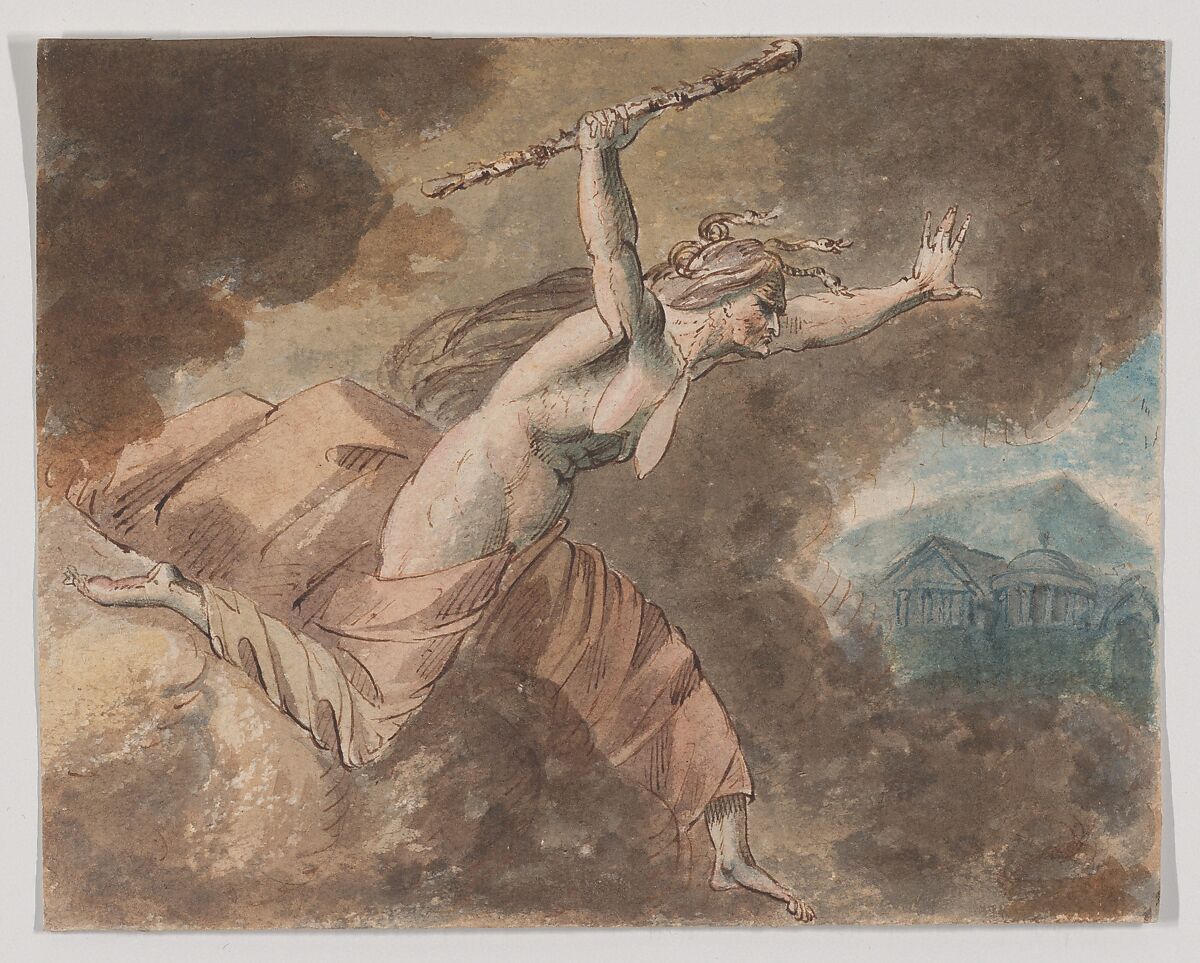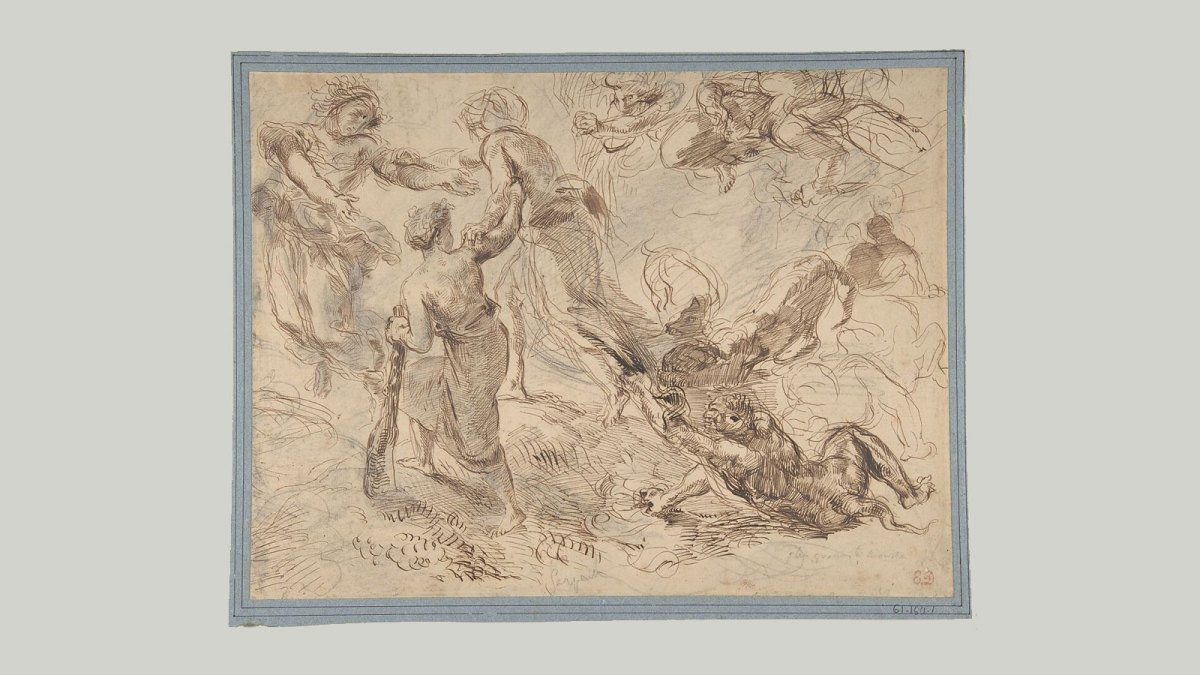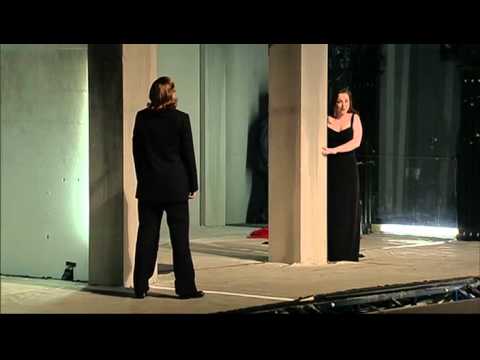The curtain opens on Mozart’s “La clemenza di Tito.” On stage is a raging Vitellia: wannabe empress, scorned daughter, forgotten royalty. “He could have at least chosen a rival worthy of me,” she spits, of reigning emperor Tito. “Instead, he prefers a barbarian and an exile to me, a queen!”
Vitellia’s father was the emperor before Tito; she feels completely entitled to the throne. According to Vitellia, what should be and rightfully is hers was cruelly ripped from her hands and given to undeserving losers. She plots murder because of this, manipulates a stupid pants-role soldier because of this. Her furious envy cannot be tamed because to her it is justified. The only way to right the wrong is a massive transfer of power.
I am a jealous opera singer. When I’m in the audience of any opera production, at least once I’ll think to myself, “It could be me up there.” This statement is true: the opera industry is unjust and random. I can trace my current reality to a few decisions I made back when I didn’t realize their weight. If only I’d been a little more charming or more connected with that one guy at that one company, I’d be in the spotlight—instead of in a small, dark seat. It feels like this on social media, too. The spotlight of the agent signing announcement; the dark seat of the scroller.
I know singers like Vitellia, people whose frustration with their inability to show off their greatness has ruined their lives. I never want to be like that. But I have already allowed my own envy to ruin relationships. In music school, I stung with bitter hatred when my friend beat me over and over again for opera roles and accolades. (Fair and square—she’s a better singer than I am.) Now, I struggle to click that little heart on acquaintances’ social media posts when they announce an exciting career move. It’s painful to watch someone stew in their own bitterness, but it’s almost impossible to notice when you’re doing it yourself, because it feels so honest, so inevitable.
In Cinderella and her Sisters: The Envied and the Envying, authors Ann and Barry Ulanov offer a Jungian take on the famous fairy tale. They analyze the fun-house mirror relationship between the one who envies and the one who is envied: the “ugly stepsisters” versus the “Cinderella.” They argue that the envier feels a great dread toward the good or skill they envy, and needs to “spoil” the good they so desperately desire. But it’s not all bad. For the Ulanovs, envy can also direct us in a powerful way, and if “suffered consciously, can lead us to what needs repair in our identities… it can close the gap that its own wounding operations have opened.” Envy avoided poisons; envy addressed enlightens.
Writing this essay, my thoughts continually returned to my successful music school friend—let’s call her Ella. Our relationship was inexorably damaged by my envy, my hatred for her undeniable talent. Envy is dehumanizing. I am reduced to an object that lacks, and I reduce the one I envy to an object of desire.
Even worse, I exorcize my friend’s enviable quality and imagine placing it inside me. I break off pieces of her wholeness. The Ulanovs describe the effect: “The envied one feels trapped behind thick glass where she can see the other person and be seen but what she says cannot reach through the thick wall of projection the envier has thrown up against her.”
I have been so fixated on my own discomfort, my bitterness, my rage, that I had no interest in allowing the object of my envy to be fully human. She became a symbol. That wasn’t fair to her or to me.
So I called her.
Ella’s memories of our time together in music school didn’t include any moments where she consciously registered my jealousy of her. Instead, she felt distant from me, and said that she could tell I had “negative emotions.” In fact, I isolated myself from her so I could stay protected in my objectification of her. I had no idea what was going on in her head. I only saw her as the object of my envy: the success story, the good singer. To me, she was the type of singer who understood her voice innately, who had a natural and easy way of presenting herself theatrically. In contrast, my singing felt effortful and self-conscious. I felt like a teenager staring up at an adult.
Ella said that the negative feelings she felt emanating from me made her feel like she was “unlikable”; they “strengthened doubts” she had about herself. “It’s a paradox,” she told me: “The external and internal experience of the person being envied and the person envying are at odds.” My envy felt so powerful that I assumed it was the uncontested truth, and I couldn’t imagine a reality that didn’t center my own emotions. I envied her because I perceived her as being overwhelmingly likable, talented, and charming; my envy left her feeling the opposite. My envy changed reality.
Ella spoke about envy as an “abandoning of the self, a fragmentation.” Envying involves attempting to replace the self with an idealized other. Enviers are desperate to “seize another more glittering self,” the Ulanovs write. More precisely, we dismantle those we envy into parts and imagine that we could somehow possess those parts we feel we lack. By focusing on that fantasy instead of nurturing our own beings, we “cannot get on with becoming.” By staring at my friend’s blazing flames, I leave my own embers to cool into coal.

Being an opera singer facilitates envy. Opera is a high-pressure, competitive industry in which jobs are few and far between, and quickly becoming fewer and farther. My opera voice frequently feels like something other than me, something that betrays me, drags me along, forces me to act in ways I wouldn’t dream of acting. This disembodiment encourages envious fragmentation: Am I envious of my talented friend, or of her voice? Where does one stop and the other begin? I imagine them as two separate entities that can be disentangled. In reality, there can be no true differentiation. I cannot patch together a perfect performer with pieces of different singers I envy. But my envy almost makes me believe I could, if only I thought about it hard enough.
The physical act of singing opera can also educate us. “The voice and singing are ways to self-actualize and explore… all the negative and positive sides of us,” Ella suggested. Opera “explores all the psychic and intellectual containers, and singing itself is such an embodied thing. Our voices are unique to ourselves.” The stories within opera, and the ways we embody those stories as we sing, allow us to transcend the fragmentation of envy. Performing a role like Vitellia, feeling your own voice as you sing her words, can be a tool for self discovery. My opera voice, which is both me and not me, can sing things I’d never have the courage to say. It exposes me.
My envy can also point me to my desires. “Envy is a helpful tool for figuring out your own dialogue with yourself,” Ella said, “how you relate your own internal world to how you’re perceived on the outside.” Directionality and self-reflection are powerful, but the dread and the terror imbued in that focus can destroy relationships and passion. You can feel envy; yet you must hold yourself back from the brink of toxic, righteous anger.
There are facts in the world: I want to have a great operatic career, I deserve to create art, I need to be proven worthy. I want people to look at me and be grateful they looked. There are more facts: Other people I know are doing the exact things I want to be doing, and they’re doing them quite well.
I can live in a world where I spin and spin in envy; where every other person’s success is proof of my failure; where my envy is physically felt by others. But now that I’ve caught it, I have to release it. I can’t ever stop releasing it. My world reflects my envy back at me. I don’t want to live in that world. I don’t want to make those around me live in that world.
The latest from VAN, delivered straight to your inbox
Like Vitellia, I can find justifications for my rage everywhere if I look with an envious eye. My envy stares back at me, green and glistening. I should have gotten that gig, I say to myself as I flip through friends’ Instagram stories. I don’t see the singer who got the role as a complete person, whose talents and skills and failures make up a unified whole I could never fully understand—just as they could never fully understand me. The Ulanovs write, “Envy is the attempt to break everything whole into parts, to fragment an as yet undifferentiated unity.” As if there was anything I could steal from Ella. There isn’t anything to steal, because there are no fragments. There is just another person.
At the end of our conversation, Ella and I talked about how nice it was to catch up. I told her to let me know if she’s ever in my part of the country.
She will be, it turns out. She’s covering at The Metropolitan Opera next season. ¶
Subscribers keep VAN running!
VAN is proud to be an independent classical music magazine thanks to our subscribers. For just over 10 cents a day, you can enjoy unlimited access to over 875 articles in our archives—and get new ones delivered straight to your inbox each week.
Not ready to commit to a full year?
You can test-drive VAN for one month for the price of a coffee.



